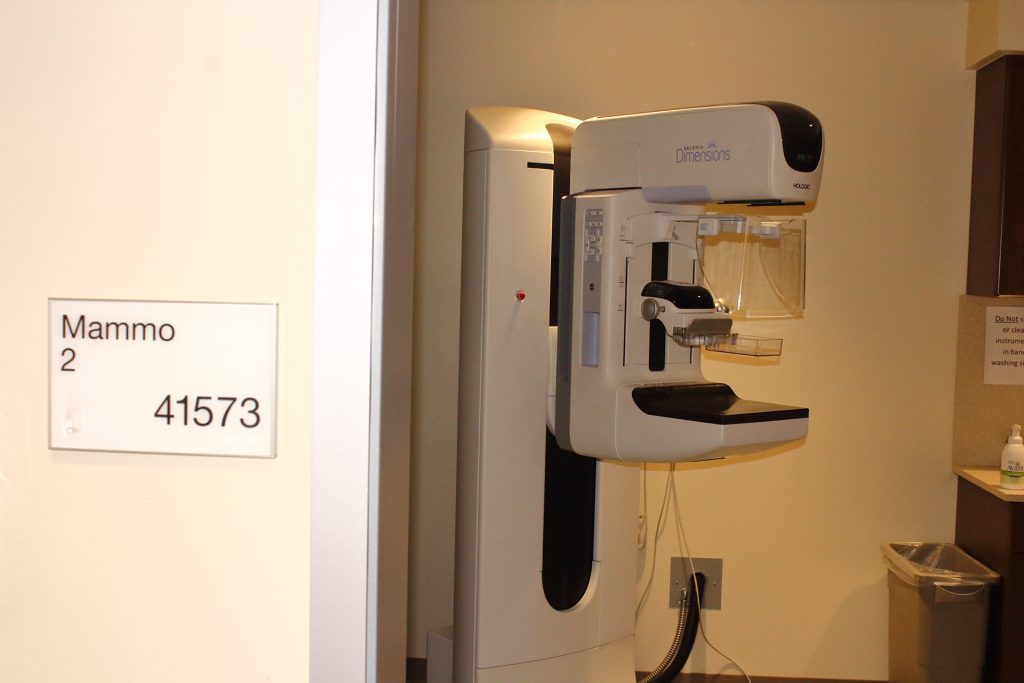According to the National Breast Cancer Foundation Inc. website, one in eight women will be diagnosed with breast cancer. It is the second leading cause of cancer-related-death in women.
On Tuesday, UI Clinical Assistant Professor Lillian Erdahl, oncology fellow Sophia Fu, and breast-cancer survivor Nancy Ramos-Howarter gathered in the IMU Big Ten Theater to discuss the causes and prevention of breast cancer.
Fu, a breast surgical oncology fellow, began by asking the audience how many knew someone who had been affected by breast cancer, and nearly all hands went up. She then asked how many thought men could be affected by the disease, and significantly fewer hands were raised. More than 40,500 women die every year because of breast cancer, and although it is rare, an estimated 460 men die from it every year as well.
“What we advocate now is breast self-awareness,” Fu said.
She promoted self-examination and seeing a doctor anytime something feels off. It’s also important for women to know family history and get officially tested earlier if they have a history of the disease, she said.
RELATED: UI focuses on breast cancer treatment
Fu said women who started smoking before their first child had a higher chance of getting cancer, as well as those who consume alcohol. High weight and poor diet is also associated with higher risk of cancer.
Erdahl, a breast surgeon, noted the disparities in different demographics.
“Women classified as being in lower socioeconomic status are less likely to have mammograms, compared with women who have more money,” she said.
She said patients in this class can often wonder: Can I afford to take a day off work?
Erdahl said it was necessary to make monograms more accessible and perhaps offer them after hours for women who can’t take time out of the workday.
Women classified as non-Hispanic black women are less likely to get screening than non-Hispanic white women, Erdahl said. Iowa actually has less of a gap, she said, while Louisiana has the highest gap. African-American women are also more likely to get more aggressive breast cancer. Those who don’t identify with the gender binary or identify as transgender also have a tougher time, as do as lesbian or bisexual women, women with disabilities, and women with metastatic breast cancer.
RELATED: UI tests ‘watchful waiting’ in new breast-cancer study
Ramos-Howarter spoke about her experience with numerous kinds of cancer. Initially, she was diagnosed with tumors in her pituitary gland, thyroid, and pancreas. She had many surgeries on all of these and was put on numerous types of medication.
“In 2008, I went in for my regular checkup, and I was told I had breast cancer in my left breast,” Ramos-Howarter said. “No one in my family had breast cancer.”
She had numerous surgeries on her left breast and then was put on medication for five years. She went back for a checkup and was devastated when she was told she had cancer in her right breast as well.
Ramos-Howarter said she became vegan in order to try to eat healthier to reduce her cancer risk. Since this change in diet, she noted, her pain has drastically lessened, she has lost weight, and her dosage in pills has gone down. The changes have made one of the biggest differences in her health, she said.



